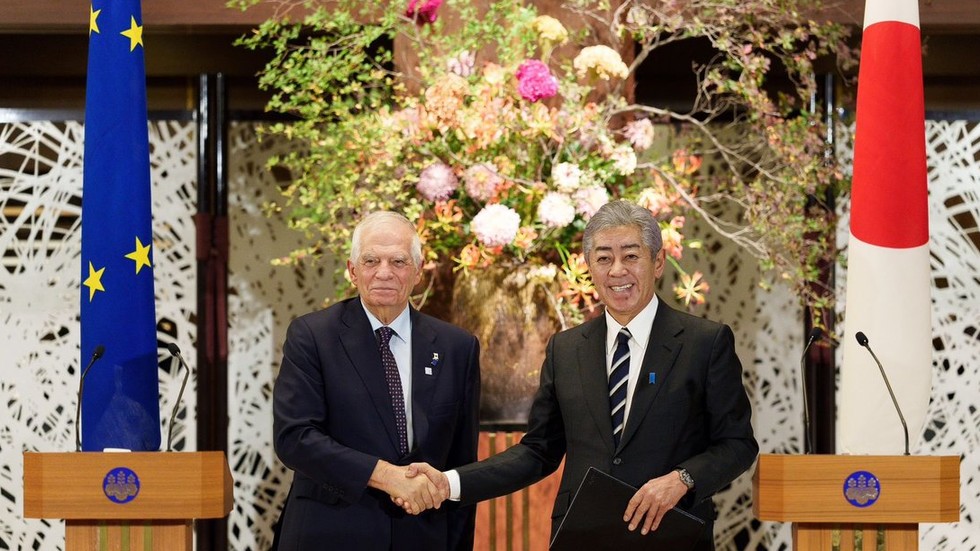In a significant move towards enhanced international security cooperation, the European Union (EU) and Japan have formally announced a comprehensive security pact, as disclosed by EU foreign policy chief Josep Borrell following his visit to Tokyo. This Security and Defence Partnership marks a pivotal moment in EU-Japan relations, being the first such agreement between the EU and any nation in the Asia-Pacific region. Borrell emphasized the importance of this partnership in fostering a more secure environment for the citizens of both the EU and Japan, as well as enhancing stability in their respective regions. The agreement is poised to take effect on January 1, 2025, symbolizing a commitment to collaborative security measures amidst evolving global challenges.
The accord establishes a framework for future security policy development, underscoring the deepening ties between the EU and Japan. It sets the stage for cooperative efforts across several strategic areas, including economic security, maritime operations, and space security. Additionally, the agreement aims to fortify collaboration against various security threats, particularly in the realms of information warfare and cyber threats. This comprehensive approach signifies both parties’ recognition of the need to combat external influences and disinformation efforts that may destabilize their nations or impede their collective security interests.
A vital aspect of the partnership is its focus on arms control and disarmament. The agreement includes commitments to engage in consultations regarding non-proliferation and efforts to curb the spread of biological, chemical, and nuclear weapons. This emphasis on disarmament illustrates a proactive stance against potential security threats, including the proliferation of advanced weaponry in the Asia-Pacific region and beyond, aligning with broader international efforts to promote peace and stability.
In the context of growing regional tensions, particularly concerning China, Russia, and North Korea, the partnership also resonates with Japan’s domestic political landscape. Newly elected Prime Minister Ishiba Shigeru, who has been a strong advocate for the creation of a NATO-like military alliance in Asia, has underscored the necessity of collaborative defense mechanisms to deter regional threats. His vision includes serious discussions about nuclear strategy, indicating a potential shift in Japan’s defense posture to adapt to the changing geopolitical environment.
The agreement signifies a broader alignment of security interests between the EU and Japan, both of which face similar challenges in their respective regions. The partnership reflects an evolving understanding that global security cannot be managed unilaterally and requires robust cooperation among democratic nations. As geopolitical dynamics continue to shift, this pact stands as a testament to the commitment of the EU and Japan to work jointly to safeguard their mutual interests and uphold international norms.
In conclusion, the newly established Japan-EU Security and Defence Partnership marks a landmark moment in international relations, emphasizing the strategic convergence of interests between two major global players. As they embark on this collaborative path, the implications of their partnership will likely extend beyond regional security, influencing global strategic frameworks aimed at fostering a safe and stable world order. As both entities prepare to implement this agreement in the coming years, it will be crucial to monitor its impact on regional dynamics and the broader international landscape.

